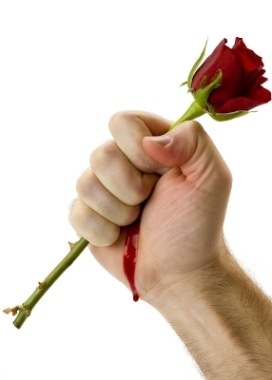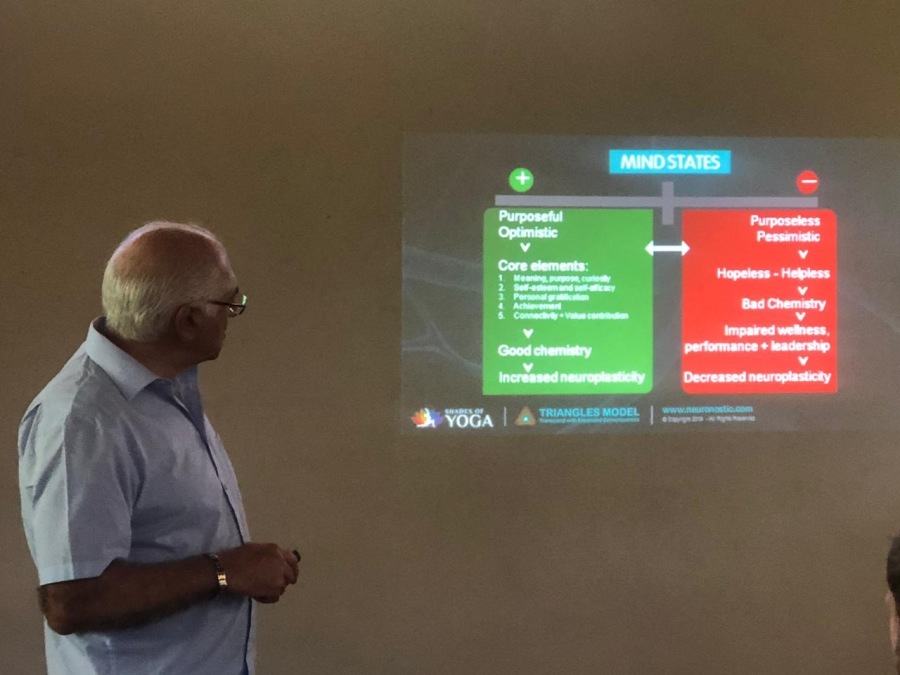To have and to hold

Indeed we have needs. As living organisms we require sustenance and we require shelter. Maslow spelt that out pretty clearly. And then we have ‘wants’. Now here things get a little murkier. For while it can be said that needs naturally morph into ‘wants’ otherwise there wouldn’t be the drive and focus to acquire, problems arise when ‘wants’ become ‘needs’.
When a ‘want’ which was not a ‘need’ transmutes into a need there is often but not always, the spectre of some nurture deprivation element which is playing out the ‘need’ in compensatory behaviour. In this way, the drive to acquisition incorporates the heritage determinants of material and emotional deprivation. The often obsessive motivation to seek and acquire can be seen to appease the fear of being left bereft of survival resources – the material and emotional deprivation are inextricably bound as one. Flowing from this dynamic is the fear of loss – loss of not being recognized because this results in the belief that if one is not recognized then reward and personal gain is compromised. The fear of loss also translates into the need to hold on to one’s gains and the need to acquire more so as to create a greater margin of ‘safety’. Together with fear of loss is fear of failure with all its incumbent anxiety triggers. Fear of failure similarly raises the spectre of failing to have the means to acquire and thereby appease the fear of loss. To complete the picture is the compromised self-esteem which hums in the background as the accompaniment to the show.
The study of this human condition can be found in the ancient Buddhist literature. It is referred to as dukkha. Dukkha refers to the pain that arises out of loss or the fear of loss and consequently to the need to hold on tightly to what you have. In this context, the fear of loss includes the fear and its accompanying uncertainty that arises out of changing circumstances and a changing landscape - the loss of a familiar status quo and comfort zone. The metaphor that is quoted in this regard in the Buddhist literature is that our individual and collective lives are as the brisk flow of a river. And flow we must, for life is an ever changing meander with the occasional tight turns, rapids and waterfalls. But if we attempt to move to the safety of the bank and hold on to something to slow or stop our flow, we shall have our arms ripped off!
The manner in which we live our lives determines also the way we approach our deaths. And sadly all too often I have observed that those who held on too tightly to the artifacts of life, also hold on tightly to the remnants of life out of fear of loss. This often translates into the expectation to prolong life at all costs to appease the fear of the afflicted and invariably that of close relatives – we inflict life upon the wretched and the dying with all its indignity.
The state devoid of dukkha is that of Nirvana – a state that arises out of sensitivity, awareness and clarity. The drive to strive for a state of Nirvana arises out of the increasing dissatisfaction and lack of gratification in a space of increasing dukkha. Once arrived at the watershed point of recognition of the folly and pain of dukkha we commence a process of evolving from compensatory behavior to one of authenticity. In this way we transcend the limiting beliefs that imprison us in the space of dukkha and all its pain. The first step in this process is to sharpen our sensitivities – of self, of others and of the extended environment. This is the fundamental component – to be able to perceive with all our senses, sans disparaging judgement. In this regard it helps by reminding ourselves that every person is a product of a heritage in which they had no choices, most notably in the earliest and most influential period.
The next step is to apply our sense of reason to achieve clarity of self – identify needs, aspirations, purposeful and gratifying activities. From here follows the reasoning process to gain clarity of others and indeed of the extended environment. Finally, the entire process is fine tuned by the acknowledgement of a personal value contribution (making something better than it was before you engaged with it).
In transcending dukkha and approaching Nirvana we become more accepting of the bigger picture and our place within it. It is an acceptance also that we have very little control over others and over the extended environment. Our lot is to reason, achieve clarity and evolve to the best that we can become. In this way we become a positive resource for others within the greater environment – true value contributors. And indeed we set ourselves up for a fulfilling death when the time comes (which it will), for a fulfilling death follows on from a fulfilling and authentic life.
Copyright reserved - Ian Weinberg 2018
Articles from Ian Weinberg
View blog
The post-dearth re-birth of mirth · As the sun rose it dawned upon me. When it set, I had no recolle ...

So there was this virus that originated in Wuhan and spread around the globe. The virus differed fro ...

From time to time I manage to get off the train of life for short periods of reflection. It became a ...
Related professionals
You may be interested in these jobs
-

Senior Operations Manager
Found in: Talent ZA C2 - 6 days ago
Old Mutual Cape Town, South Africa Full timeDescription · This role is accountable for execution of tactical business plans at operational level through other managers and their teams, over periods of 3 months to a year. The role includes the following responsibilities: · Accountable for execution of tactical business p ...
-
Project Manager Durban/Dalton KZN
Found in: Executive Placements ZA C2 - 5 days ago
AJ Personnel Durban, South Africa ContractMinimum Requirements · Project Management and Mechanical Engineering Diploma/Degree, or Trade Test Diploma in Refrigeration or Refrigeration Project · Installation management experience · 5 Years in refrigeration project management will be an advantage · General level of understa ...
-
Fund Accountant
Found in: Talent ZA C2 - 6 days ago
PKF Cape Town (Bellville and Stellenbosch) Cape Town, South Africa Full timeOur client in the Employee Benefits and Funding industry is looking for a Fund Accountant to join their team · Requirements: · BCom Accounting/ BAcc degree · Completed SAICA articles · Employee benefits / funding exposure during articles would be beneficial · Computer literate ...


&v=024)
Comments
Ian Weinberg
4 years ago #26
Interesting question Ken. I guess the responses would be as varied as the spread of human values. Just on reflection I can see some moving into a chronic hopeless-helpless mind state; others eventually putting shoulder to the wheel and recreating it all again. A very small minority I believe would experience a catharsis projecting them into a very different non-consumeristic space. In a totally different vain, here I’m thinking of your farmers, vital value contributors need to be assisted to previous status. This is when the individual’s needs overlap with the collective needs. And while I’m on the subject, perhaps it’s time to create safe reserves for all the Aussie wild life ( similar to our Kruger Park etc).- major value contribution and much new employment.
Ken Boddie
4 years ago #25
Lyon Brave
6 years ago #24
Jerry Fletcher
6 years ago #23
Ian Weinberg
6 years ago #22
Thanks very much Harvey Lloyd As always, yours is a consistent and significant value contribution.
Harvey Lloyd
6 years ago #21
Harvey Lloyd
6 years ago #20
Harvey Lloyd
6 years ago #19
Randall Burns
6 years ago #18
#15 LMFAO!!! You guys!!
Ian Weinberg
6 years ago #17
Thanks Cyndi wilkins Knew I could count on you to add that touch of authenticity!
Cyndi wilkins
6 years ago #16
Ian Weinberg
6 years ago #15
When a 'want' morphs into an obsessive 'need' , it's not worth the sweat IMHO.
Pascal Derrien
6 years ago #14
Ian Weinberg
6 years ago #13
you make a good point Ken Boddie And that's putting it bluntly!
Ken Boddie
6 years ago #12
Ian Weinberg
6 years ago #11
Thanks for sharing Pamela \ud83d\udc1d Williams To quote my late mentor:Live every day with an eye on the feeling of the last moment before the lights go out and ensure that it will be a good one - Because if not, it will be too late to change it ...
Ian Weinberg
6 years ago #10
The 'immortalizing' industries are the most lucrative. You find them in plastic and reconstructive surgery as well as in drugs and nutricuticals. And indeed they've collectively all but extinguished the possibility of our death from our awareness.
Joyce 🐝 Bowen Brand Ambassador @ beBee
6 years ago #9
Ian Weinberg
6 years ago #8
Thanks CityVP \ud83d\udc1d Manjit Insightful. Thanks for sharing
Ian Weinberg
6 years ago #7
Thanks for that Randall Burns I do believe we're on the same page!
Ian Weinberg
6 years ago #6
Thanks for sharing Sara Jacobovici
Ian Weinberg
6 years ago #5
Thanks for that Sara Jacobovici Best wishes.
CityVP Manjit
6 years ago #4
Randall Burns
6 years ago #3
Sara Jacobovici
6 years ago #2
Sara Jacobovici
6 years ago #1